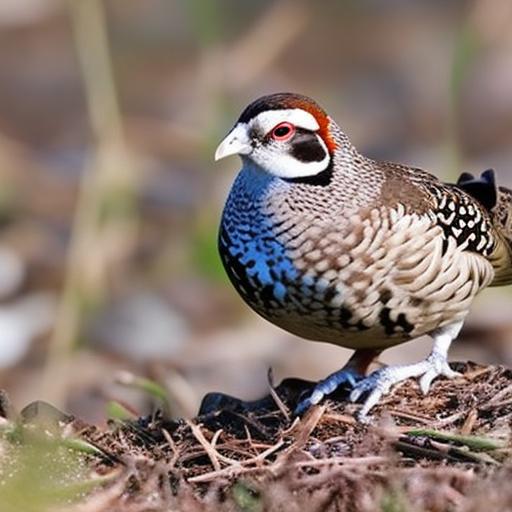Quail eggs have been consumed for centuries and are a popular delicacy in many parts of the world. They are smaller in size compared to chicken eggs, with a unique spotted pattern on their shells. Quail eggs are not only delicious but also packed with nutrients, making them a popular choice for health-conscious individuals. These eggs are rich in protein, vitamins, and minerals, making them a valuable addition to any diet. Quail eggs are also known for their rich, creamy yolk and delicate flavor, making them a favorite among chefs and food enthusiasts.
Quail eggs are not only used for culinary purposes but also have a long history of medicinal use in traditional medicine. They are believed to have various health benefits, including boosting the immune system, improving skin health, and promoting overall well-being. In recent years, quail eggs have gained popularity as a superfood, with many touting their numerous health benefits. As a result, the demand for quail eggs has been on the rise, leading to an increase in quail farming and egg production. In this article, we will explore the benefits of quail eggs, the process of breeding quail for egg production, caring for quail during egg production, collecting and handling quail eggs, incubating quail eggs, and selling and marketing quail eggs.
Key Takeaways
- Quail eggs are small, nutritious, and have a unique flavor compared to chicken eggs.
- Quail eggs are rich in vitamins, minerals, and antioxidants, making them a healthy addition to any diet.
- Breeding quail for egg production requires proper housing, nutrition, and breeding management to ensure a steady supply of eggs.
- Caring for quail during egg production involves providing a stress-free environment, proper nutrition, and regular monitoring of their health.
- Collecting and handling quail eggs should be done carefully to ensure their cleanliness and freshness for consumption or sale.
- Incubating quail eggs requires a specific temperature, humidity, and turning schedule to successfully hatch healthy quail chicks.
- Selling and marketing quail eggs can be done through local markets, online platforms, or direct sales to consumers, highlighting their nutritional benefits and unique taste.
Benefits of Quail Eggs
Quail eggs are a nutritional powerhouse, packed with essential nutrients that offer a wide range of health benefits. They are an excellent source of high-quality protein, containing all nine essential amino acids that the body needs for growth and repair. In addition to protein, quail eggs are rich in vitamins and minerals, including vitamin A, B2, B12, and D, as well as iron, phosphorus, and selenium. These nutrients play a crucial role in supporting overall health, from boosting immunity to promoting bone health and energy production.
One of the key benefits of quail eggs is their high antioxidant content. Antioxidants help protect the body from oxidative stress and reduce the risk of chronic diseases such as heart disease and cancer. Quail eggs are also known for their ability to improve skin health, thanks to their high collagen content. Collagen is essential for maintaining skin elasticity and preventing signs of aging. Additionally, quail eggs have been linked to improved brain function and cognitive health due to their choline content, which is important for brain development and function. With their impressive nutrient profile and numerous health benefits, it’s no wonder that quail eggs have gained popularity as a superfood.
Breeding Quail for Egg Production
Breeding quail for egg production is a relatively straightforward process that can be done on a small scale or a larger commercial operation. Quail are known for their prolific egg-laying abilities, making them an excellent choice for egg production. When breeding quail for egg production, it’s important to start with healthy breeding stock to ensure the quality of the eggs. Selecting birds with good genetics and strong egg-laying capabilities is crucial for a successful breeding program.
Quail reach sexual maturity at around 6-8 weeks of age, at which point they can start laying eggs. To encourage egg production, it’s important to provide quail with a suitable environment that mimics their natural habitat. This includes providing adequate space, proper lighting, and a balanced diet. Quail are sensitive to changes in their environment, so it’s important to minimize stress and provide a consistent routine to encourage regular egg laying. By creating the right conditions and selecting the right breeding stock, quail farmers can establish a successful breeding program for egg production.
Caring for Quail During Egg Production
Caring for quail during egg production is essential for ensuring the health and well-being of the birds as well as the quality of the eggs. Providing a clean and comfortable living environment is crucial for maintaining healthy and productive quail. This includes keeping their living quarters clean and well-ventilated, providing access to fresh water at all times, and offering a balanced diet that meets their nutritional needs. It’s also important to monitor the birds regularly for signs of illness or stress and provide prompt veterinary care when needed.
Quail are sensitive to changes in their environment, so it’s important to minimize stress and provide a consistent routine to encourage regular egg laying. This includes minimizing disturbances in their living environment and handling them gently when necessary. Additionally, providing proper lighting is crucial for regulating the birds’ reproductive cycle and encouraging consistent egg production. By providing attentive care and creating the right conditions, quail farmers can ensure that their birds are healthy and productive during the egg production process.
Collecting and Handling Quail Eggs
Collecting and handling quail eggs requires care and attention to ensure that the eggs remain fresh and free from contamination. Quail typically lay their eggs in secluded areas within their living quarters, so it’s important to check for eggs regularly to prevent them from being damaged or soiled. When collecting quail eggs, it’s important to handle them gently to avoid cracking or breaking the delicate shells. Using clean hands or gloves is recommended to prevent contamination from bacteria or dirt.
After collecting the eggs, it’s important to store them properly to maintain their freshness. Quail eggs can be stored at room temperature for up to a week or refrigerated for up to a month. It’s important to store the eggs with the pointed end down to help keep the yolk centered and maintain freshness. Proper handling and storage of quail eggs are essential for preserving their quality and ensuring that they remain safe for consumption.
Incubating Quail Eggs

Incubating quail eggs is an essential step in the process of hatching chicks for future egg production or meat purposes. Incubation typically takes around 17-18 days before the chicks hatch. During this time, it’s important to provide consistent temperature and humidity levels to ensure successful hatching. Using a reliable incubator with automatic temperature and humidity controls can help maintain optimal conditions for the developing embryos.
Turning the eggs regularly during incubation is important for preventing the embryos from sticking to the shell membrane and ensuring proper development. It’s also important to monitor the development of the embryos by candling the eggs periodically to check for signs of growth and viability. Providing attentive care during the incubation process is crucial for ensuring a successful hatch and producing healthy quail chicks.
Selling and Marketing Quail Eggs
Selling and marketing quail eggs can be a lucrative venture for quail farmers looking to capitalize on the growing demand for these nutritious delicacies. There are various avenues for selling quail eggs, including local farmers’ markets, specialty grocery stores, restaurants, and online platforms. Developing a strong brand identity and marketing strategy can help differentiate your quail eggs from competitors and attract customers.
Highlighting the nutritional benefits and superior quality of your quail eggs can be an effective marketing strategy to appeal to health-conscious consumers. Offering unique packaging or specialty products such as pickled quail eggs or flavored varieties can also help attract customers looking for something different. Building relationships with local retailers or restaurants can also help create a steady market for your quail eggs. By implementing effective marketing strategies and establishing reliable sales channels, quail farmers can successfully sell their eggs and capitalize on the growing demand for this nutritious superfood.
In conclusion, quail eggs are not only delicious but also packed with essential nutrients that offer numerous health benefits. Breeding quail for egg production requires careful attention to create the right conditions for successful egg laying. Caring for quail during egg production is essential for maintaining healthy and productive birds. Collecting and handling quail eggs requires careful attention to ensure their freshness and safety. Incubating quail eggs is an important step in hatching healthy chicks for future egg production or meat purposes. Selling and marketing quail eggs can be a lucrative venture with the right strategies in place to attract customers and establish reliable sales channels. With their impressive nutrient profile and numerous health benefits, quail eggs are sure to remain a popular choice among consumers looking for nutritious and delicious food options.
If you’re interested in learning more about poultry breeding and care, you might want to check out this insightful article on how to care for goslings. It provides valuable information on raising and nurturing young geese, which can be helpful for those looking to expand their knowledge beyond quail eggs. Understanding the principles of caring for different types of poultry can be beneficial for anyone involved in egg production.
FAQs
What are quail eggs?
Quail eggs are the eggs laid by various species of quail, which are small ground-nesting birds. They are smaller than chicken eggs and have a spotted pattern on their shells.
How long does it take for quail eggs to hatch?
Quail eggs typically take about 17-18 days to hatch once they have been incubated.
What is the process of breeding quail for eggs?
Breeding quail for eggs involves providing a suitable environment for the quail to lay their eggs, collecting the eggs, and then incubating them until they hatch. It also involves providing proper nutrition and care for the quail to ensure healthy egg production.
What are the benefits of quail eggs?
Quail eggs are considered a delicacy in many cultures and are known for their rich nutrient content, including high levels of protein, vitamins, and minerals. They are also lower in cholesterol than chicken eggs.
How many eggs does a quail lay?
Quail can lay anywhere from 200 to 300 eggs per year, depending on the breed and the conditions in which they are kept.
What are some common challenges in breeding quail for eggs?
Common challenges in breeding quail for eggs include maintaining proper temperature and humidity during incubation, preventing egg breakage, and ensuring the health and well-being of the quail for consistent egg production.
Meet Walter, the feathered-friend fanatic of Florida! Nestled in the sunshine state, Walter struts through life with his feathered companions, clucking his way to happiness. With a coop that’s fancier than a five-star hotel, he’s the Don Juan of the chicken world. When he’s not teaching his hens to do the cha-cha, you’ll find him in a heated debate with his prized rooster, Sir Clucks-a-Lot. Walter’s poultry passion is no yolk; he’s the sunny-side-up guy you never knew you needed in your flock of friends!







